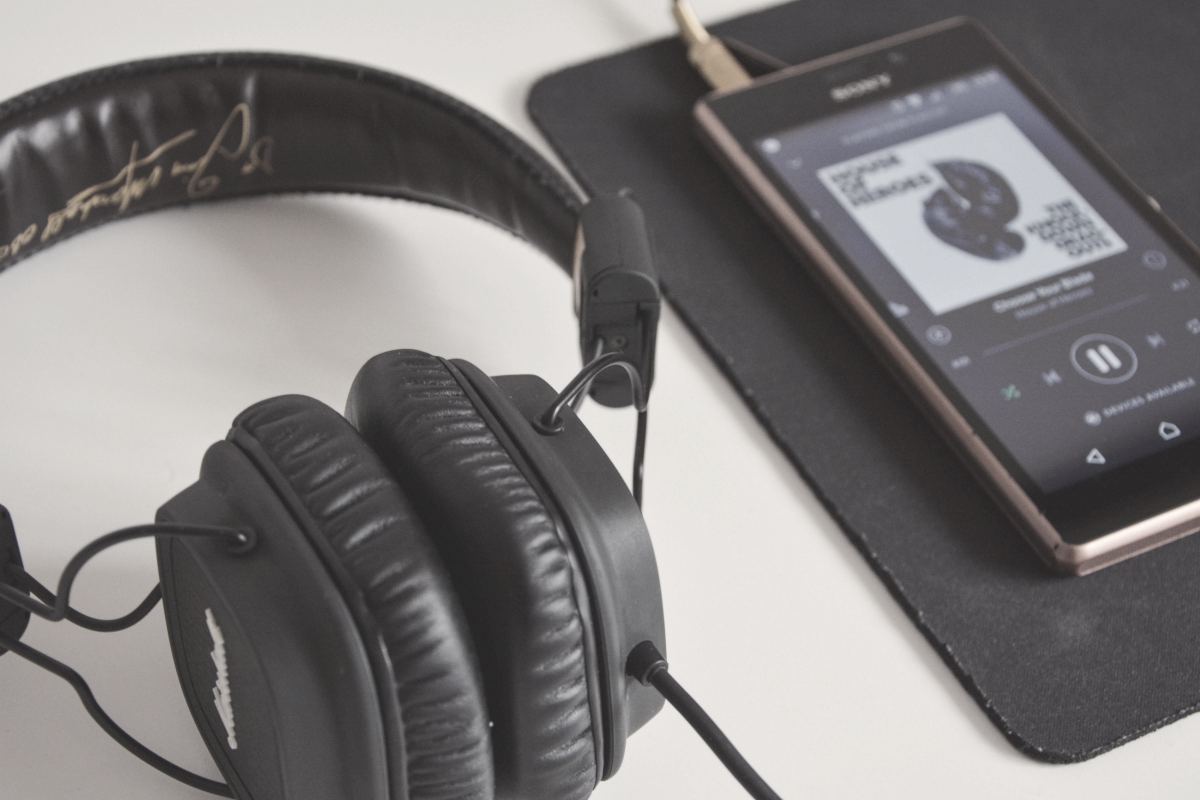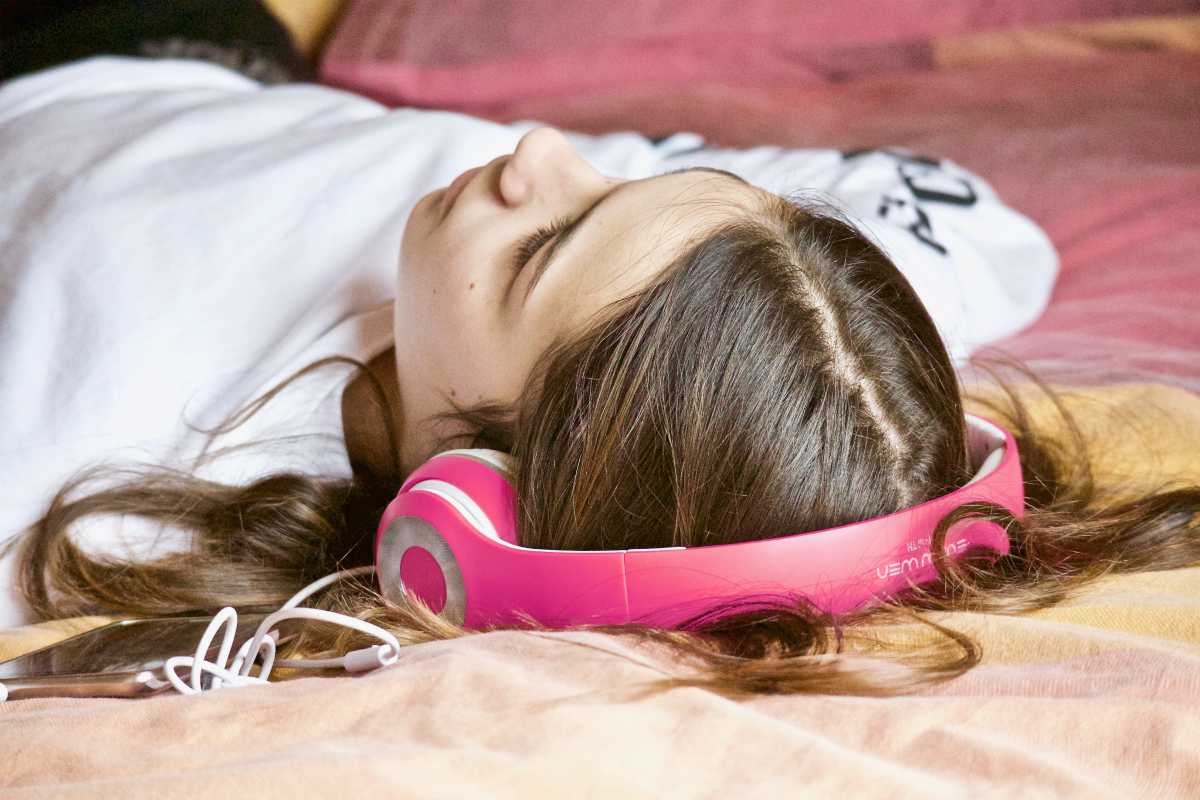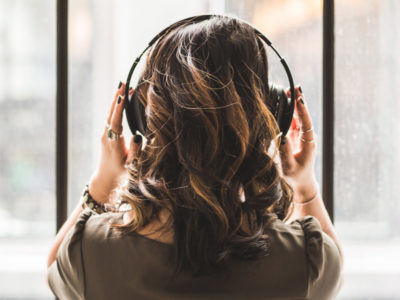Table of Contents[Hide][Show]
If you’re having a hard time catching a snooze, perhaps all you need is sleep music. Find out how it makes you sleep better in this article.
What Is Sleep Music?
Sleep music is not an official genre. Instead, it stems from the idea that some types of music can lull people to sleep.
Music to sleep to includes soft mellow songs as well as classical music with mostly instrumentals. Binaural beats can also be sleep music.
Binaural beats refer to the difference between the two frequencies of soundwaves that pass through your ears. Your left ear’s frequency is not the same as the one in the right, but your brain processes both as one.
For this to work, the difference of the frequencies should not go beyond 1,000 hertz. Otherwise, you can no longer hear them.
How Does Sleep Music Work?

In reality, it still remains unclear how relaxing music for sleep works. Experts believe it can be due to the following reasons:
1. It Releases Feel-Good Chemicals
The way our brain works is complex. Not only can it detect threats so you can avoid it, but it can also pull pleasant memories to help you feel better.
Depending on how much of the information the brain kept, the memories can be vivid. For example, it can remember the song and the the emotions you felt during that period, the people you’re with, and the setting.
If it’s something pleasant, it can stimulate the brain to produce chemicals such as dopamine and serotonin. Both are neurotransmitters but they work in different ways.
Dopamine activates the areas of the brain associated with motivation, movement, and pleasure. It can help keep you alert and focused.
Serotonin, meanwhile, promotes relaxation and calmness. It also encourages quality sleep.
Music, therefore, may have the power to boost your concentration or focus while reducing your level of stress.
2. Music for Sleep Can Induce a Relaxed State
Many experts believe the brain produces different levels of frequency patterns, depending on situations. This is because the body’s command center produces some electrical activity.
When a person is awake and active, the brain is in the beta phase. At this level, you engage the brain to logic and reason.
Because of the intensity of focus and concentration necessary, it can potentially lead to burnout and stress. You can combat that by lowering the frequency to alpha.
Alpha waves happen when the frequency falls between 8 and 13 hertz. You are still not sleeping at this point, but the brain gets into a more relaxed state.
People compare it to doing meditation, so the effects are similar. Your heart rate goes down, your tensed muscles ease, and your blood pressure normalizes.
3. It Can Activate the Parasympathetic Nervous System
The nervous system has different divisions, and one of these is the autonomic nervous system. This one also has three functions, such as sympathetic and parasympathetic.
The sympathetic functions are what you engage in when you’re facing a potentially imminent threat. It diverts blood flow to certain parts of the body that should help you run or challenge the threat.
The parasympathetic function is different. It promotes rest by lowering your heart rate and also helps improve your digestion.
When your digestion is doing well, you can prevent symptoms that may encourage or worsen sleep disturbances. These can include constipation, bloating, gas, and even more severe conditions such as inflammatory diseases.
RELATED: 9 Benefits Of Listening To Relaxing Music During Meditation
Who Can Benefit From Sleep Music?

Anyone can benefit from sleep music, particularly the following:
1. Students and Workers
They need to exert a lot of effort, concentration, and focus on what they’re doing. They can live hectic lives, which increases the likelihood of stress getting out of control.
When this happens, they experience fatigue, burnout, and even a poorer immune system.
In a 2008 study, students who listened to classical music for at least 45 minutes improved their sleep quality. They also reduced their symptoms of depression.
2. Children and Parents
Sleep music for kids can benefit both the child and the parents. Lullabies, for example, promote a resting heart rate.
They can also induce lower frequency patterns so the baby gets into a deeper, sounder sleep. They also shield the brain from the effects of noise brought about by household activities.
For parents, baby sleep music can help establish sleeping routines. Through exposure, the child can put themselves to dreamland as soon as they hear the music.
3. People with Insomnia and Other Sleep Disorders
If you struggle with sleep due to insomnia and other similar disorders, meditation sleep music may be what you need. Your body, particularly the brain, can respond to the rhythm of the sound you hear.
This also tells you not to listen to something fast, upbeat, or rock when you’re about to sleep. These types of music can increase your stress response, making you more alert.
Related
How to Get Rid of Insomnia
Learn what insomnia is, what causes it, and some strategies and lifestyle adjustments you can try to get rid of it and get back to a quality night’s sleep.
Why Do Some People Struggle with Sleep?
The reasons why people have a hard time sleeping can significantly vary. Even the music you listen to can be the culprit.
Take, for example, an experiment conducted among diners. In the 2018 study, those who listened to louder background music made less-healthy food choices than those who heard more calming music.
Bad food choices can then lead to poorer digestion, and this may increase the risks of factors that can impede sleep. Other reasons may include:
- Exposure to blue light, such as the one emitted by devices
- Mental stress such as depression and anxiety
- Night-shift work
- Jet lag
- Exhaustion or fatigue
- Bad sleeping habits
- Sleep apnea
- Pregnancy
- Medical conditions such as hypothyroidism
- Physical and emotional trauma
Keep in mind that the goal of deep sleep music isn’t only to lengthen your sleep but also to make it a good one. In other words, when you wake up, you should feel refreshed and energized.
Where Do You Get Sleep Music?
Today, you should not have trouble looking for sleep music. For example, you can search for ‘YouTube sleep music’ and play it when it’s about your bedtime.
Another option is to download apps such as Spotify, which stream this type of music. If you are a premium member, you can save the files on your mobile device and listen to them offline.
You may also hear meditation music for sleep when you participate in relaxation or yoga sessions. They may play after a rigorous exercise as studies showed it may promote faster recovery.
When Is the Best Time to Play This Music?
You need to listen to deep relaxing sleep music when you’re about to go to bed. It can begin 20 minutes before your sleep schedule.
Note, however, you can listen to it anytime you think your body has to unwind, reset, and recollect. You may also play it when you’re about to undergo stressful situations such as deadlines and travel.
Relaxing sleep music, one that normalizes the heartbeat and lowers its rate, can enrich your life in many ways. It deserves to be part of your daily routine so make a habit out of listening to it!
You May Also Like…





